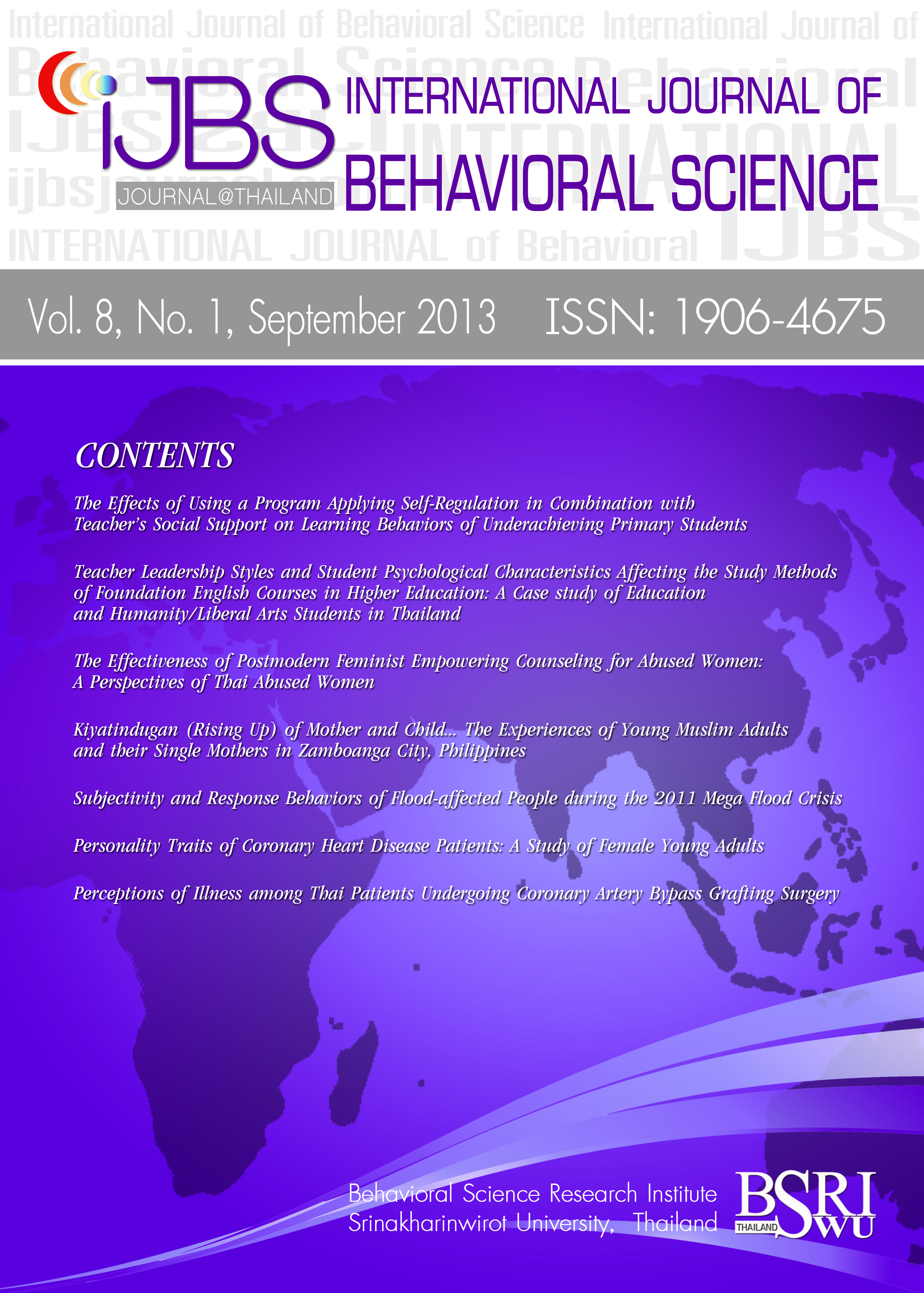The Effects of Using a Program Applying Self-Regulation in Combination with Teacher’s Social Support on Learning Behaviors of Underachieving Primary Students
Main Article Content
Abstract
The purpose of this paper was to evaluate the effectiveness of a program applying self-regulation in combination with teacher’s social support in improving the learning behaviors of underachieving primary students. The sample consisted of nineteen grade 5 students in a primary school located in Bangkok Metropolitan identified as underachieving. The research design used in the study was a combination of a quasi-experimental and ABA design. Learning behavioral forms were used to collect the data and two-way MANOVA with repeated measures was the statistical technique used for data analysis. The results were that both programs applying self-regulation in combination with teachers’ social support and the program applying only self-regulation were significantly effective in improving individual students’ in-class and after-class behaviors. Furthermore, there was no significant difference in effectiveness between the two programs.
Keywords: learning behavior, self-regulation, social support, underachievement


